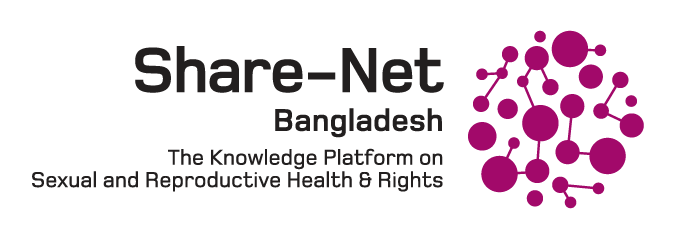Share-Net Bangladesh presents policy review: Breaking the Last Taboo on Menstruation in Bangladesh
We are proud that Share-Net Bangladesh has developed a policy review addressing the challenges of menstruation in Bangladesh. Despite the government’s continuous effort in addressing menstrual health and hygiene management in Bangladesh, it continues to be a challenge, especially at schools.
Share-Net Bangladesh has conducted this review to collect, collate, summarise, and critically appraise and analyse the limitations and scope of work of the current policies, strategies, and plans which are related to reproductive and menstrual health in Bangladesh. It provides recommendations for the government and the development practitioners towards policy influencing and improving the strategies and plans. The review highlights that current policies and plans need to focus on adequate and inclusive toilet facilities for girls and women in public places. Furthermore, it discusses that special focus should be given to girls with disabilities and their menstrual health. It unfolds that the current policies should address the affordability and availability of the menstrual hygiene commodities for all.
Policy Review: Breaking the Last Taboo: Menstruation in Bangladesh
In Bangladesh, menstrual hygiene is a taboo and heavily stigmatised subject to be discussed openly in public or even in the family. Taboo and misconceptions associated with menstruation cause women and girls to be deprived of their social and cultural independence. Despite the government’s continuous effort in addressing menstrual health and hygiene management in Bangladesh, it continues to be a challenge; especially at school. While menstrual hygiene management (MHM) issues have recently gained attention in the global development agenda, Bangladesh also focused to increase awareness and access to MHM for women and girls. However, government policy and strategy documents still lack the appropriate measures for improving MHM.
According to UNICEF and WHO (2014), appropriate menstrual hygiene management (MHM) refers to women’s and girls’ access to clean menstrual management materials to absorb or collect blood that can be changed in privacy as often as necessary for the duration of the menstruation period; access to soap and water for washing the body as required; and having facilities to dispose of used menstrual management materials.
Unawareness, shame, and inconveniences linked to menstruation are some of the key obstacles for women’s and girls’ social, economic, political, and physical empowerment. Though the policies, plans, and strategies by the Government of Bangladesh addresses women’s rights and health internationally, a greater focus on menstrual health and hygiene practices is still missing. In this light, Share-Net Bangladesh has conducted this review to collect, collate, summarise, and critically appraise and analyse the limitations and scope of work of the current policies, strategies, and plans which are related to reproductive health and menstrual health in Bangladesh. It provides recommendations for the government and the development practitioners towards policy influencing and improving the strategies and plans. The review highlights that current policies and plans need to focus on adequate and inclusive toilet facilities for girls and women in public places. Furthermore, it discusses that special focus should be given to girls with disabilities and their menstrual health. It unfolds that the current policies should address the affordability and availability of the menstrual hygiene commodities for all.
Download the full policy review “Breaking the Last Taboo: Menstruation in Bangladesh” here.

